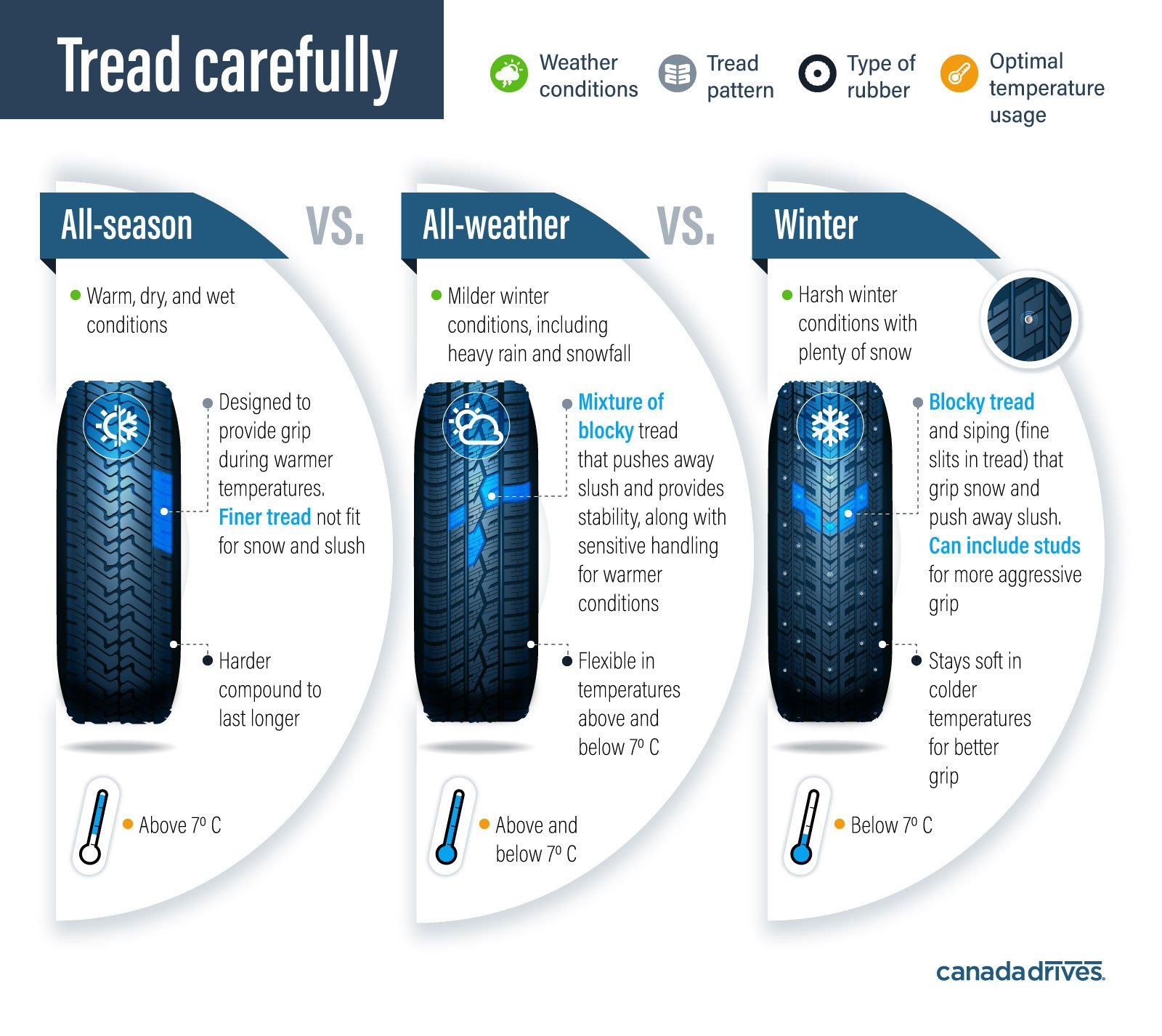
Tire Guide
What a tire does for you!
Must be able to carry the vehicle’s load. Has to guide the vehicle. Has to transmit force.
Has to deliver the lateral force for turning. Has to absorb shocks & impacts. Has to roll efficiently & be durable.
What a tire must provide:
Cushioning power – Help isolate all the road irregularities
Contact point for the vehicle – Steering control & road grip, everything between you & the road.
Load Carrying – Support load of the vehicle & its contents.
FAQ
-
Summer Tires
Dedicated summer tires will improve the performance and aesthetics of your vehicle. Performance tires are designed for great handling and stability. Usually they are designed with one side of the tire built for dry traction and the other side for wet traction. They may be a stiffer tire which might affect the comfort of your ride. The special compound used in summer tires enhances performance, but may not provide the same tread wear as all-season tires; so you may need to replace them faster.Not recommended for winter driving.
-
Winter Tires
Winter tires have special compounds that improve your traction, stopping ability, and overall handling whenever the thermometer dips below 7°C/45°F. Winter tires provide a high level of grip and control that all-season tires cannot compete with. They are less effective in temperatures above 7 degree, and the tread will wear out much faster. Winter tires are also an added cost.
-
All Terrain Tires
All terrain tires are built bigger and with increased traction control to handle a variety of road conditions from rain on a city street to a muddy back road. These tires are generally fairly loud, stiff, and not very fuel efficient, but are great for adventure seekers who want to have some fun, but not necessarily go into the bush. They are available in a variety of strengths for durability and designs that provide a look of aggressiveness for different preferences.
-
ALL Season Tires
It's confusing when you hear the terms all-season and all-weather compared against each other. If you're talking about all-seasons, then it seems logical you would be talking about all types of weather, right? Not exactly.
All-season tires offer optimal performance during spring, summer, and fall. In fact, some companies have begun renaming all-season tires "3 season tires". Unfortunately, this is not an ideal tire for sub-zero, snowy winter conditions. These tires tend to lose grip at temperatures below 7 degrees Celsius.
The treads on all-seasons are often smooth and straight, repelling water when you're driving in the rain and gripping the road better during warm to hot conditions.
Mud and snow tires are all-season tires that have been approved for muddy and snowy conditions. The 'M+S' designation can be found on the tire. With regards to mandatory tire requirements in Canada, mud and snow tires are approved for use in British Columbia as long as the tire has a tread depth of 3.5mm. However, mud and snow tires do not meet the mandatory winter tire requirement in Quebec
-
All Weather Tires
All-weather is a hybrid tire that can cover you in mild conditions, as well as some non-extreme winter conditions.
In a lot of ways, it's the best of both worlds. You're getting strong performance in summer, spring and fall months, similar to the all-season, but you're also getting good performance in the winter season. Plus, winter tires require change over and storage, while all-weather are used all year, so you're unburdened from that winter tires cost.
Like winter tires, all-weather tires are recognized by Transport Canada as safe to use in most snowy conditions. On the physical tire, you will see a symbol of a 3-peaked mountain/snowflake (“Alpine”) logo (see table) on tires that qualify for this designation.
If there's a downside to all-weather, it's that they generally don't last as long as all-season and winter. This is why you will see shorter tread warranties for all-weather compared to others. It makes sense, considering you are driving on these tires all year long versus swapping out two different sets of tires (all-seasons and winter).
-
Mud-Terrain Tires
Mud-terrain tires are specially designed for off-roading and going where the all-terrain cannot. They are aggressively designed to appeal to car enthusiasts that want to go into the bush or simply make a statement on the road.
Information & Images referenced from Tread Carefully: All-Season vs. All-Weather vs. Winter Tires (canadadrives.ca)


